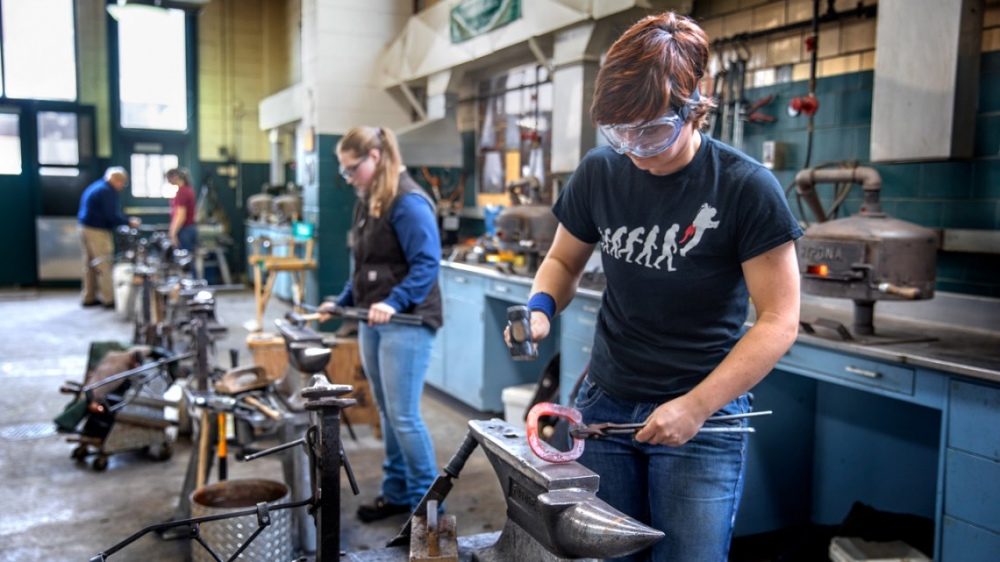Pictured Above: Kerry Spain, right, and Kahlan Schramm forge horseshoes as part of their training in the Cornell Farrier Program. Spain and Schramm are both students in Cornell's first all-women farrier class. Photo: Lindsay France/Cornell University Photography
Cornell University admitted three new students to its exclusive farrier program in January 2018, continuing an educational tradition that has been upheld for more than 100 years. However, this particular class differs from all others because, for the first time in the program’s history, the three students selected for the program are all women.
“More and more women want to get involved in horseshoeing,” Steve Kraus, Cornell’s head of farrier services and senior lecturer in the College of Veterinary Medicine, told the Cornell Chronicle. “It’s the same trend you see in veterinary medicine in general.”
Kraus’ new students, Paige Maxxam, Kahlan Schramm and Kerry Spain, will graduate from the 16-week program in April 2018. After their graduation, each student will find a farrier to apprentice under to continue honing their skills and building their experience.
“I’m here because I want to pursue this dream,” Maxxam told the Chronicle. She, along with her fellow inductees, will be learning skills that will help them tackle the demanding work that farriers face.
Cornell’s farrier program is designed to help students care for horses in a holistic way, covering everything from anatomy to shoeing and forging. The students also work with the equine hospital to learn more advanced techniques.
“It’s great getting that experience,” says Schramm. “I’d never seen radiographs with my trimmings before.”
In spite of the fact that Maxxam, Schramm and Spain comprise the university’s first all-women farrier class, their motives for pursuing the program ultimately remain the same as the farriers who came before them.
“It’s not about being a woman or a man,” says Schramm. “You need to be good at your job first. That’s why we’re here.”
However, the fact remains that this class is adding a unique contribution to the history of the program.
“It’s empowering,” says Spain. “We’re breaking a glass ceiling.”







